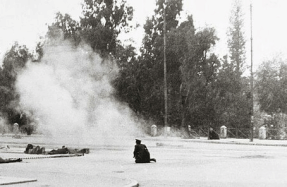THE SIEGE OF KHARTOUM
Aug 04, 2022
3 minutes

After Egypt amassed huge debts to European banks and a nationalist uprising led by Ahmed Urabi flared up and threatened Imperial control in the region, the British government decided to act: first with a naval bombardment of Alexandria then a full-scale invasion. Urabi was defeated by British forces under Garnet Wolseley at the Battle of Tell El Kebir in September 1882.
The British initially had little interest in events in Sudan and left the matter to the ruling
You’re reading a preview, subscribe to read more.
Start your free 30 days





